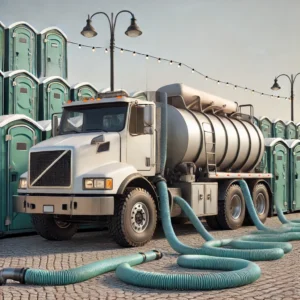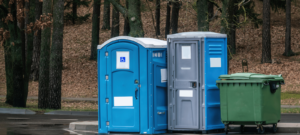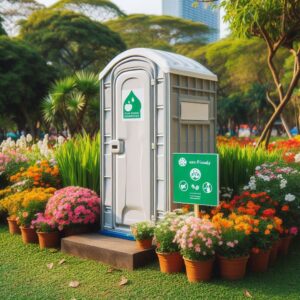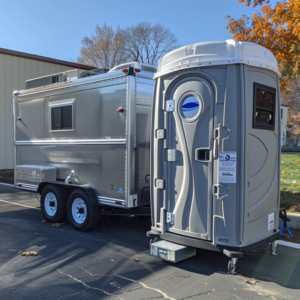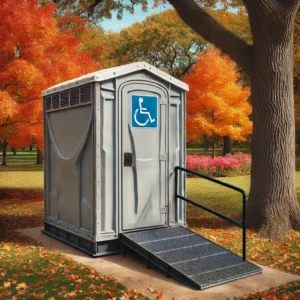Where To Dump Portable Toilet Waste- Best Options for Disposing of Portable Toilet Waste
Finding the right place to dispose of portable toilet waste is crucial for maintaining cleanliness and adhering to environmental regulations. Whether you’re managing a construction site, hosting an outdoor event, or traveling in an RV, knowing where to dump portable toilet waste is essential for proper sanitation and sustainability. Portable toilets provide convenient facilities in areas where permanent plumbing is impractical. However, managing their waste requires careful planning to ensure it’s done responsibly. Improper disposal can lead to environmental contamination and legal issues. Therefore, understanding the best options for disposing of portable toilet waste is vital.
One of the primary considerations is compliance with local regulations. Many municipalities have specific guidelines regarding the disposal of human waste, especially concerning portable toilets. These regulations often dictate designated dumping sites or require the use of licensed waste disposal services. Moreover, choosing the right dumping location involves assessing accessibility, hygiene standards, and environmental impact. Some options include dedicated waste disposal stations, sewage treatment plants, or authorized dumping facilities. Each option has its advantages and considerations, such as proximity to your location, availability of amenities like rinse water, and the ability to handle large volumes of waste.
In this blog, we’ll explore various disposal options in detail, providing insights into the best practices for managing portable toilet waste while minimizing environmental impact. Whether you’re a first-time user or a seasoned professional, understanding where to dump portable toilet waste ensures a cleaner, safer environment for everyone.
Best Waste disposal sites for portable toilets
When it comes to waste disposal sites for portable toilets the question may occur “Where To Dump Portable Toilet Waste” Here’s a look at some of the best options available for portable toilet waste disposal sites.
- Public Sewer Systems: Many municipalities provide designated dumping stations where portable toilets can be emptied. These sites are typically well-maintained and equipped to handle waste disposal safely and efficiently.
- Campgrounds and RV Parks: These facilities often have dumping stations for RVs and portable toilets. They are convenient for travelers and are designed to handle the specific needs of waste disposal from portable units.
- Construction Sites: Larger construction projects often have arrangements for waste management, including portable toilets. They may have on-site disposal facilities or arrangements with waste management companies for regular servicing.
- Special Events Venues: Venues hosting large gatherings or events usually have designated areas for portable toilet waste disposal. These sites are managed to ensure cleanliness and compliance with local regulations.
- Waste Management Facilities: Some areas have specialized waste management facilities that accept portable toilet waste. These sites are equipped with the necessary infrastructure to handle and treat waste appropriately.
Choosing the right waste disposal site depends on factors like proximity, regulations, and the volume of waste needing disposal. Ensuring that waste is disposed of responsibly helps to minimize environmental impact and ensures the health and comfort of users and the surrounding community.
Importance of proper disposal of portable toilet waste
Proper disposal of portable toilet waste is crucial for environmental sustainability, public health, and maintaining hygiene standards. Whether at outdoor events, construction sites, or recreational areas, managing human waste responsibly prevents contamination and promotes a safer environment for everyone involved.
- Preventing Environmental Pollution: Improperly disposed portable toilet waste can seep into groundwater or contaminate surface water sources, leading to environmental degradation and health risks for wildlife and humans alike.
- Reducing Health Risks: Waste from portable toilets may contain pathogens and harmful bacteria that can spread diseases if not disposed of correctly. Proper disposal helps mitigate these health hazards and minimizes the risk of outbreaks.
- Maintaining Hygiene Standards: Ensuring that waste is disposed of in designated facilities or through approved methods helps uphold hygiene standards. This is especially critical in settings where large numbers of people are gathered, such as festivals or construction sites.
- Compliance with Regulations: Many regions have specific regulations governing the disposal of human waste to protect public health and the environment. Adhering to these regulations is essential to avoid legal repercussions and fines.
- Promoting Responsible Tourism and Recreation: In natural areas and tourist destinations, proper disposal practices preserve the beauty of the environment and encourage sustainable tourism practices.
By educating users and operators of portable toilets about the importance of Safe disposal of portable toilet waste, we can collectively contribute to cleaner environments, safer public spaces, and healthier communities. Each small effort towards responsible waste management plays a significant role in safeguarding our surroundings and promoting sustainable living practices.
Waste Disposal Regulations For Portable Toilets
Waste disposal regulations for portable toilets are crucial for maintaining environmental and public health standards in various settings. Portable toilets are commonly used in outdoor events, construction sites, and recreational areas where access to traditional sanitation facilities is limited. Proper disposal of portable toilet waste involves adherence to specific guidelines to prevent contamination and ensure safe handling.
Dumping portable toilet waste must comply with local and federal regulations, which often prohibit dumping in unauthorized areas such as storm drains or natural water bodies. Waste disposal sites for portable toilets designated for portable toilets, commonly known as dump stations or waste transfer stations, play a pivotal role. These stations are equipped with facilities to safely collect and manage the waste, including specialized equipment for pumping and containment.
Operators of portable toilets are typically responsible for transporting waste to these designated sites using vehicles equipped for safe handling and transport. This process helps mitigate environmental impact and prevents potential health hazards associated with untreated human waste. Regulations also emphasize proper maintenance and cleaning of portable toilets to ensure hygiene and functionality. Regular servicing includes emptying waste containers, replenishing supplies, and sanitizing units to uphold cleanliness standards.
By adhering to waste disposal regulations, stakeholders contribute to sustainable waste management practices that protect both public health and the environment, ensuring that portable toilets remain a safe and convenient sanitation solution in diverse settings.
Alternative Disposal Methods
Alternative disposal methods for portable toilet waste are crucial for managing sanitation in environmentally sensitive areas or locations where traditional sewage systems are not feasible. One innovative approach involves the use of composting toilets, which convert human waste into compost through natural processes. These systems use aerobic decomposition to break down organic matter, reducing pathogens and producing a safe, nutrient-rich compost that can be used as fertilizer.
Another method gaining traction is bioremediation, where microbial cultures are used to break down waste in a controlled environment. This process accelerates decomposition and minimizes the environmental impact of waste disposal. Bioremediation systems can be designed to handle large volumes of waste efficiently, making them suitable for events or construction sites. Vacuum-based systems offer a water-efficient alternative by using suction to transport waste to a central processing facility. This method reduces water usage compared to conventional flush toilets and minimizes the need for chemical treatments, making it environmentally friendly.
In remote or disaster-stricken areas, incineration toilets provide a hygienic solution by burning waste at high temperatures, reducing it to sterile ash and vapor. While energy-intensive, this method eliminates the need for water and minimizes environmental contamination. Each of these alternative disposal methods addresses different challenges associated with portable toilet waste, offering sustainable solutions tailored to specific needs and environments. As technology advances, further innovations are likely to emerge, improving efficiency and reducing the ecological footprint of waste management practices.
Conclusion:
Finding the right location to dump portable toilet waste is crucial for both environmental responsibility and regulatory compliance. Proper disposal ensures that human waste is managed safely and hygienically, minimizing the risk of contamination and environmental impact. One of the best options for disposing of portable toilet waste is designated waste disposal facilities. These facilities are equipped to handle and treat human waste safely, often incorporating advanced technologies to ensure proper treatment and minimize environmental pollution. Utilizing such facilities not only adheres to legal requirements but also contributes to maintaining public health standards.
Another viable option is to utilize authorized dumping stations or septic waste services. These services are designed to accept portable toilet waste and ensure it is disposed of in a manner that meets health and safety regulations. They provide a convenient solution for businesses, event organizers, and individuals who require regular disposal of portable toilet waste. Furthermore, following guidelines and regulations set by local authorities is essential. This includes obtaining necessary permits and adhering to specific dumping procedures to prevent environmental harm.
By responsibly choosing where to dump portable toilet waste, individuals and organizations play a significant role in preserving the environment and public health, ensuring that waste management practices are sustainable and effective for future generations. Looking for a porta potty rental for weddings? Discover affordable porta potty rental prices tailored for events like weddings. Our clean, reliable units ensure comfort and convenience. Click here to reserve yours today and make your event memorable!

